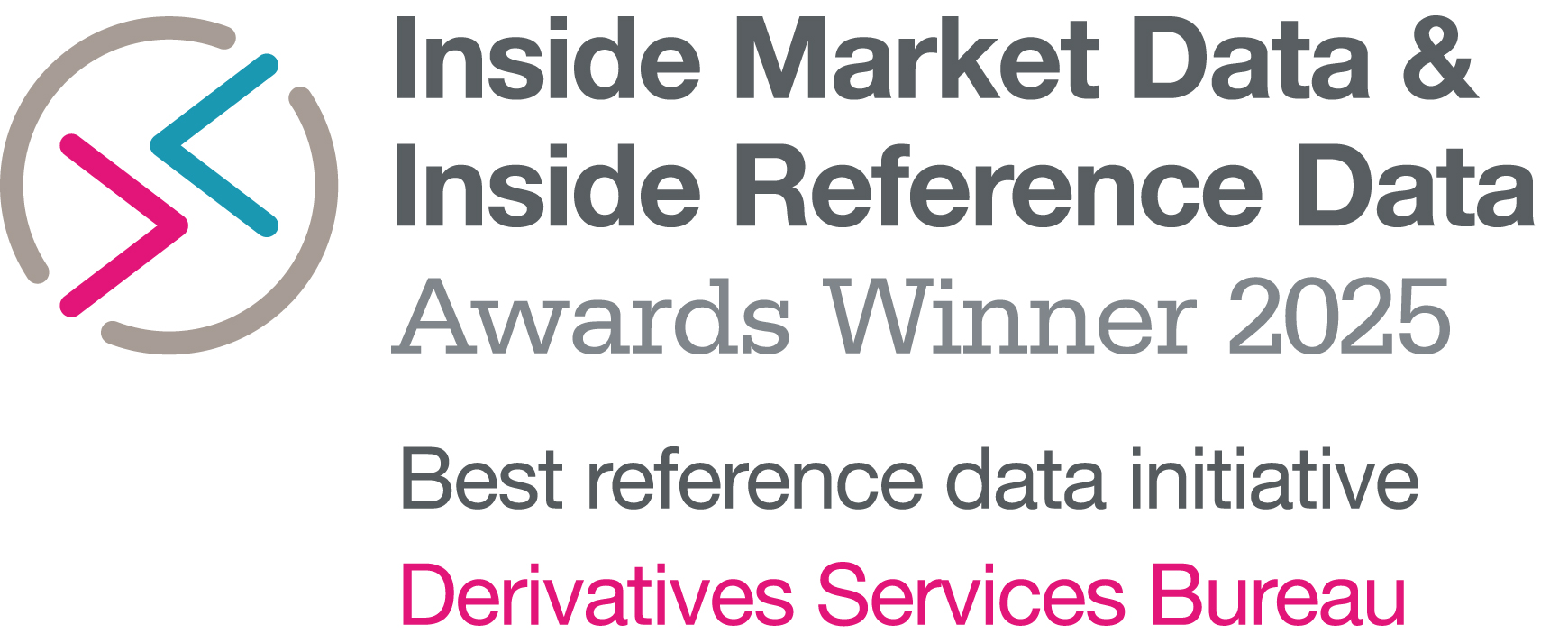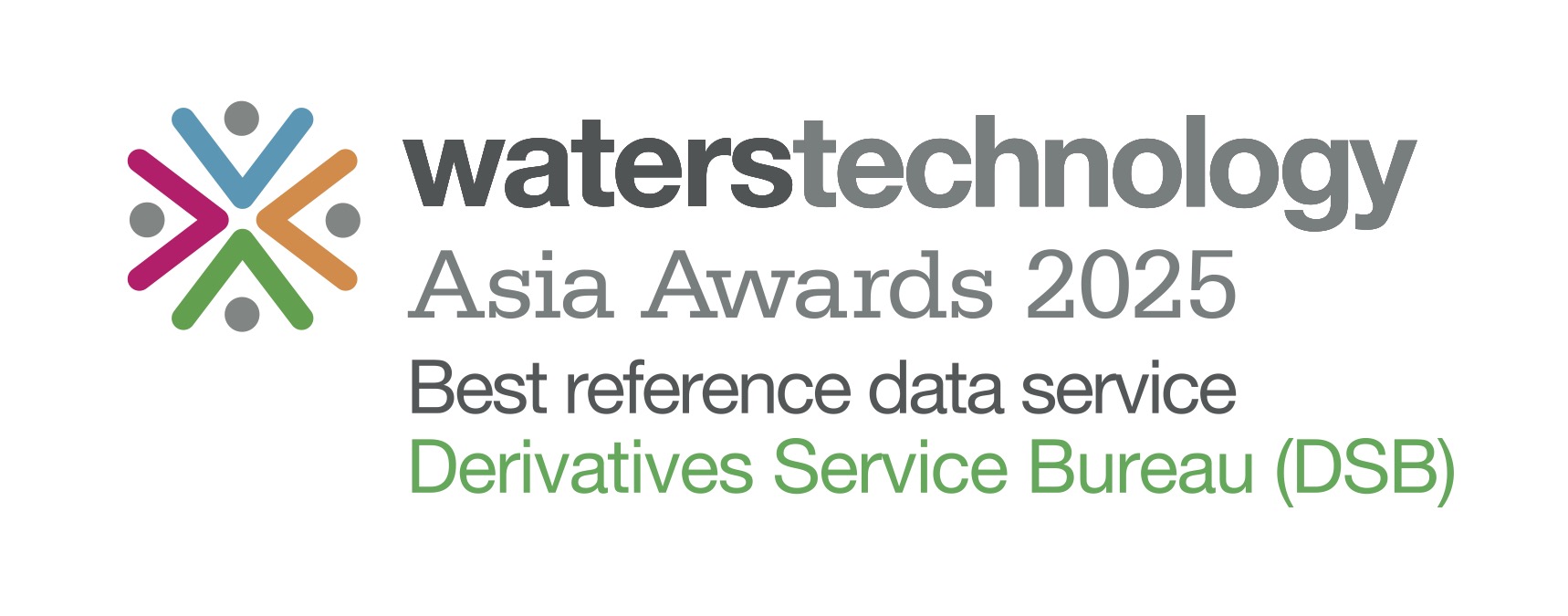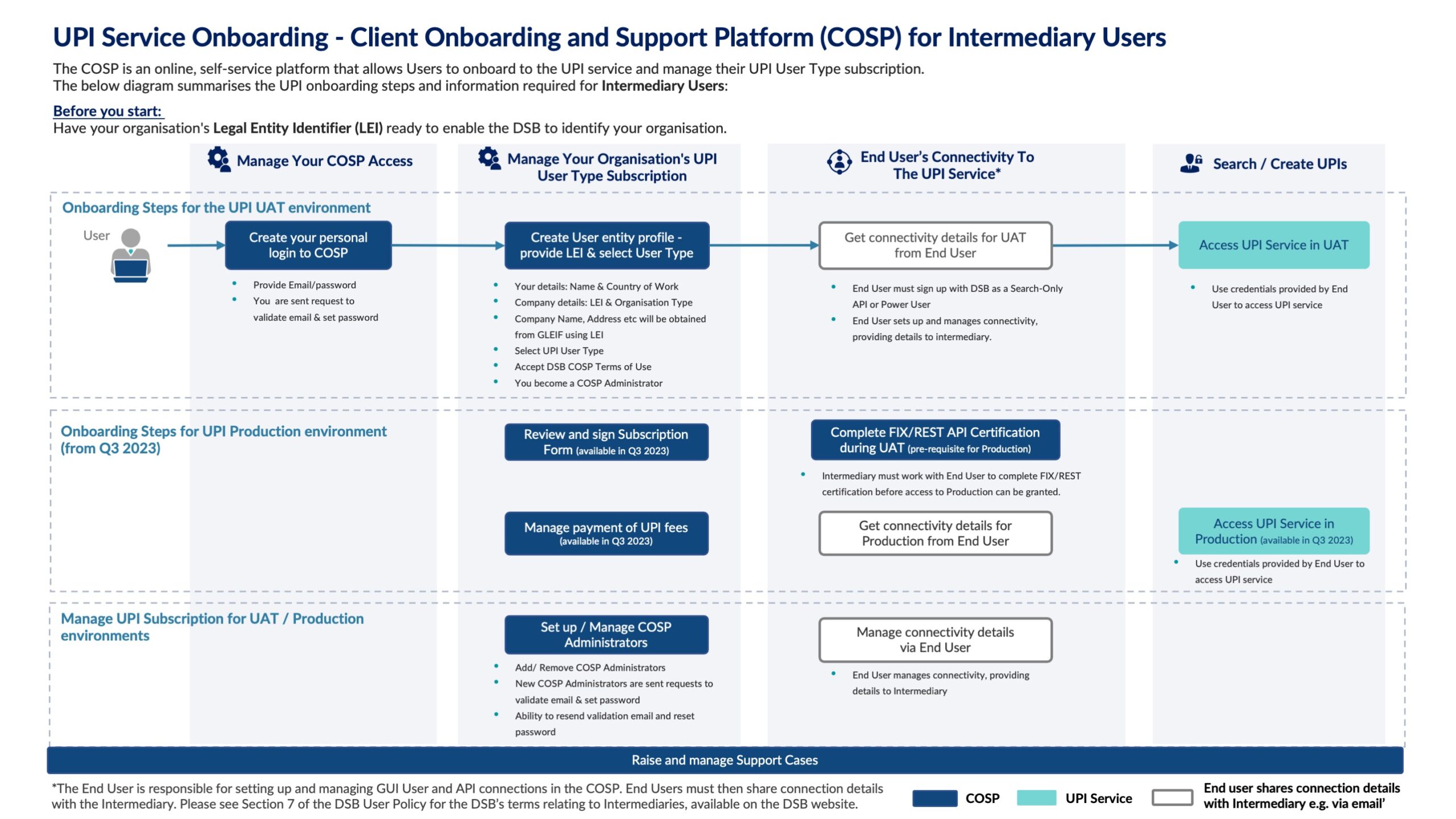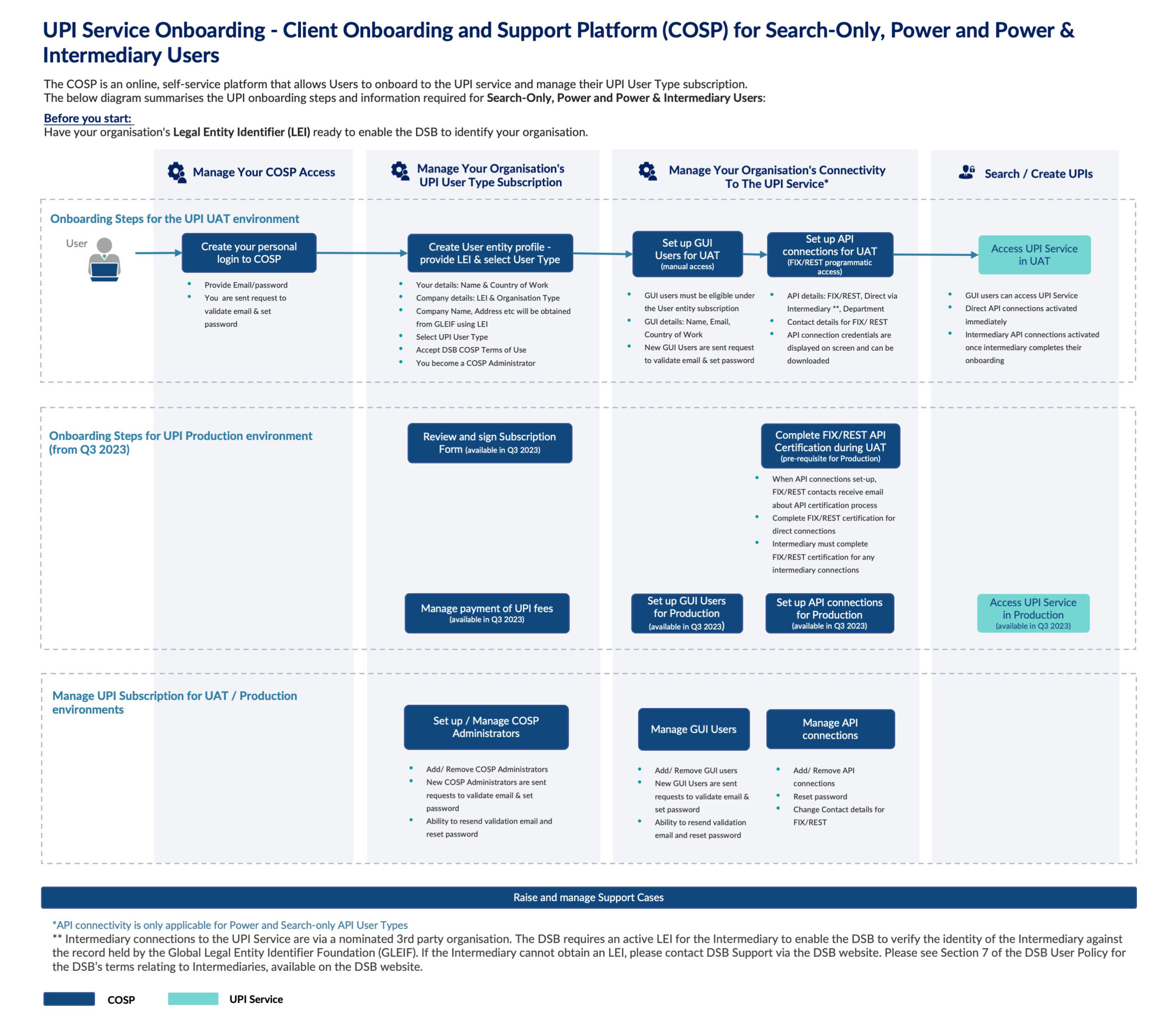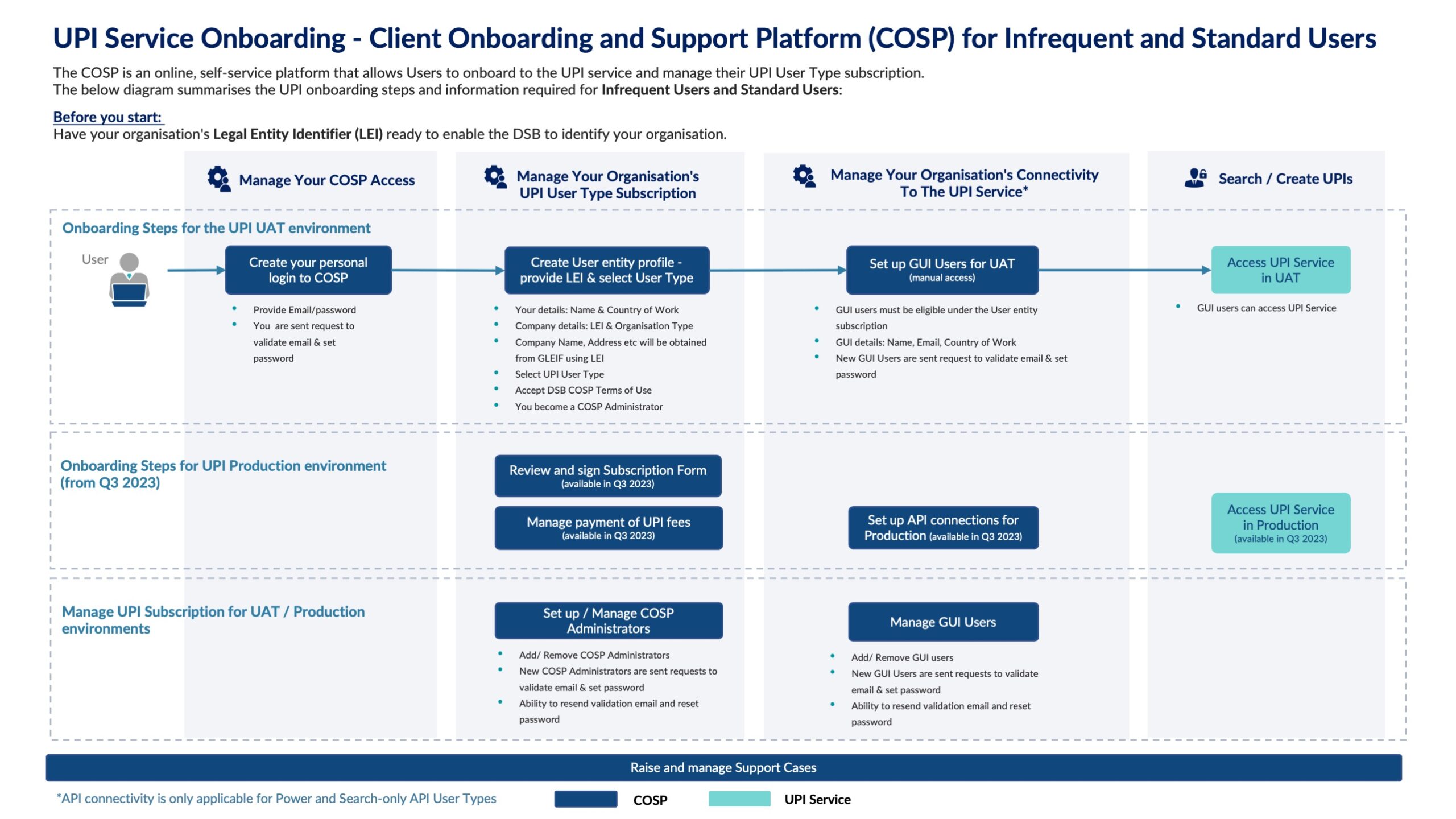Banks Lead Industry Preparations for MiFID II Reporting of OTC Derivatives Reference Data
Contract Submissions Suggest Changing Profile of DSB User Base
14 December 2017 – 8am UTC
London, UK — the Derivatives Service Bureau (DSB) reports today on progress in new contracts received for fee-based services. These include creation of new International Securities Identification Numbers (ISINs) for OTC derivatives and programmatic connections to the DSB which enable fully automated operations and real-time updates. As of 7 December, 77 entities have submitted contracts in which fees are applicable, more than doubling the number reported last month. Another 74 firms have registered for no-cost data services.
Emma Kalliomaki, managing director of the DSB, says, “In the run- up to the January deadline, our administrative and technical staff are working overtime to facilitate user contracts and expedite integrations with user systems for MiFID II readiness. Not surprisingly, we have found that organizations that helped shape our policies and operations through the DSB’s industry consultations tend to have easier onboarding experiences because they are better informed and prepared.”
A trend emerging among the fee-based contracts is the higher than expected proportion of participation by banks (both global and regional), major buy-side firms and smaller trading venues. Anticipated participation by larger trading venues has not yet materialized. According to indications received by the DSB, some organizations owning multiple trading venues may limit ISIN-creation activity to only a few of their venues, rather than all as previously expected.
Evolving DSB Fee Distribution Profile
The breakdown of fee-paying users is as follows:
• 66 Power Users – connecting programmatically
• 5 Standard Users – ISIN creation via web interface
• 6 Infrequent Users – low-volume ISIN creation via web interface
The DSB is an industry utility that operates on a cost-recovery basis – that is, recovering its overhead cost through user fees. No profits are obtained from cost recovery operations, and each additional contract lowers the fees for all others. Final fees for the first contract period from 2 October 2017 to 31 December 2018 will be announced on 15 January 2018, and based on contracts received by 5 January 2018.
Considering the contracts received to date and indications from the larger trading venues, the DSB is projecting that fees paid by investment banks may be required to cover 60 percent of the overhead of the service, with 15 percent of costs covered by vendors and the buy-side. With the delay in contract submissions and indications of reduced numbers of contracts from larger venues, the DSB is estimating the venues’ share of overhead recovery may be as little as 25 percent.
Malavika Solanki, Principal Consultant at Etrading Software, the Management Services Partner of the DSB, notes, “The increased activity seen in the last month was driven by firms wishing to be in production by mid-December. However, new contracts continue to arrive and are moving through the onboarding process at a steady pace. We look forward to working with industry to further evolve the service and deliver greater operational efficiencies.”
ISINs Available for Regulatory Reporting
Users have created more than 625,000 ISINs since the service was opened in October for on-demand ISIN generation and retrieval. The DSB’s initial adopters had focused on equity derivatives, with increasing volume of FX and interest rate products appearing in recent weeks.
Meeting the SLA
In the first two months of operation, the DSB has met all its performance and resiliency targets, including surpassing the 99.9% availability rate of the service level agreement (SLA) with zero outages in production. Similarly, the performance of the system has surpassed the 1000ms requirement of the latency SLA, with the DSB processing 99% of all requests within 220ms.
“The resiliency and performance targets of the service reflect industry feedback in Q1 of 2017 to meet the trading venues’ end-of-day ISIN reporting requirements of MiFID II. Since then, we have seen mounting interest from banks to incorporate DSB reference data into their front-office trading flows to meet MiFID II intraday transparency requirements. We are pleased that the DSB’s modern technology is enabling the industry to step up to these entirely new reporting requirements,” says Sassan Danesh, Managing Partner at Etrading Software, providing the day-to-day management of the DSB.
Governance
The DSB operates in accordance with the ISO principles of a numbering agency for the provision of ISINs – and the principles of open and equitable access. The DSB has conducted additional consultations on topics such as technology infrastructure, operations, product scope and functionality. The DSB is keen to remain in open dialogue with industry as the service evolves so that industry views continue to shape its planning.
The DSB is currently welcoming applications for its technology and advisory committee which is due to be set up in 2018.
Connect with the DSB
All use of the derivatives service bureau requires registration. To register and to obtain technical support, please email your request to technical.support@anna-DSB.com.
To obtain non-technical information on the DSB including information on product templates, to obtain the user agreement and related documentation, as well as to subscribe to the DSB updates by email, please send your request to secretariat@anna-DSB.com.
For detailed information on pricing and user categories, technical principles of the DSB, and information about the DSB product committee and its activities, please visit the DSB section of the ANNA website.
About The Derivatives Service Bureau (DSB) Ltd
Headquartered in London, the DSB is a legal subsidiary of ANNA. Its core purpose is to serve as a global numbering agency, providing unique identification of OTC derivatives to serve the needs of market participants and regulators through allocation of the International Securities Identification Number (ISIN), as well as the Classification of Financial Instruments (CFI) and Financial Instrument Short Name (FISN), as OTC products are created. The ISIN, CFI and FISN are globally recognized and adopted ISO standards for identifying and classifying financial instruments.
More detailed information on the DSB and its development path can be found in the DSB section and related pages, as well as recent announcements at the ANNA website.
About ANNA
Established in 1992 by 22 founding numbering agencies, ANNA is the membership organization of national numbering agencies, which are operated by depositories, exchanges, government agencies, nationally central data vendors and other financial infrastructure organizations. ANNA also serves as the registration authority for the ISIN and FISN standards, under appointment by the International Organization for Standardization (ISO).
Under ANNA’s stewardship, the role of the ISIN in enabling global financial communications has been established worldwide. ISINs are issued today more than 200 jurisdictions worldwide. In addition, ANNA is developing the Derivatives Service Bureau (DSB), a fully automated global numbering agency to meet the operational and regulatory requirements of the over-the-counter derivatives markets. The number of national numbering agencies and nations working to establish national numbering agencies continues to grow each year, now surpassing 120 jurisdictions globally. For information about ANNA, its members and activities, please visit anna-web.org.
Contact:
secretariat@anna-dsb.com



